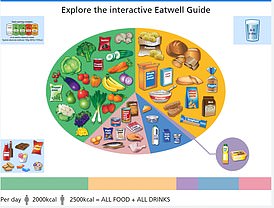I’m a doctor – these are the 3 foods you didn’t know could make your urine smell weird
Many do not think twice about going to the toilet.
But sometimes a funky-smelling pee can make you panic and wonder what’s behind the smell.
Here, MailOnline reveals the top three foods that a doctor says could be the cause of your smelly urine.
Dr. Semiya Aziz, a London-based GP, said that while an unusually odorous pee is usually harmless, you should see your doctor if you notice a persistent change.
Coffee compounds and antioxidants are absorbed by the digestive tract, broken down into waste products called metabolites, and then excreted in the urine, which can cause urine to smell bad
Coffee
It’s bad news for coffee lovers. Coffee is a common cause of funky smelling urine.
Compounds and antioxidants in the beans are absorbed through the digestive tract, broken down into waste products called metabolites, and then excreted in the urine, which can cause urine to smell bad.
In addition, caffeine is a diuretic, meaning it increases urine production.
As a result, those who drink large amounts of coffee can become dehydrated, causing their urine to have a higher metabolite concentration and a stronger odor.
Dr. Aziz said: ‘The compound found in coffee can give urine a stronger and more distinct smell.
“While it can act as a diuretic, it can also lead to dehydration, which in turn can lead to concentrated urine and a more noticeable odor.”
While the average person in the UK and US drinks about two cups a day, many depend on five cups to get through a workday.
Smelly urine isn’t the only downside to consuming that much hot drink. The large amounts of caffeine can have serious consequences for your heart.
Consuming high doses (more than 500 mg, about five cups of coffee) can lead to anxiety, restlessness, insomnia and increased heart rate.
One cup can contain 80 to 100 mg.
Asparagus, garlic and onions
Unsurprisingly, pungent foods can lead to foul-smelling urine.
Sulfur-rich foods like asparagus, garlic, and onions can have a huge impact not only on the smell of your pee, but also on its color.
Methyl mercaptan is a sulfur-based compound in these foods that is absorbed into the bloodstream and passes through the body’s renal system – the kidneys, ureters and urethra.

Sulfur-rich foods like asparagus, garlic, and onions can have a huge impact not only on the smell of your pee, but also on the color
It is a common cause of funky smelly urine described as rotten cabbage.
However, not everyone can perceive the stench.
It is estimated that less than 50 percent of people can smell a change in urine after eating foods high in sulfur, such as asparagus.
Some also break down the sulfur byproducts more quickly, so not enough passes through the body’s renal system to have any impact.
Dr. Aziz said: ‘Asparagus is a vegetable that contains a substance called asparagus acid that produces a sulphurous smell when broken down by the body.
“Fortunately, not everyone can detect this smell, but those who do may notice a strong, pungent smell shortly after eating asparagus.”
Spices
The ingredients that give your curry its scent can also make your urine smell odd.
Spices such as cumin, turmeric, and coriander are all known culprits of stinky wee.
The aromatic chemicals that give these delicious foods their enticing scent can be retained as they pass through the body.
Even after all your food has been digested, the foul-smelling compounds can still pass through your kidneys and be noticeable in your pee.

